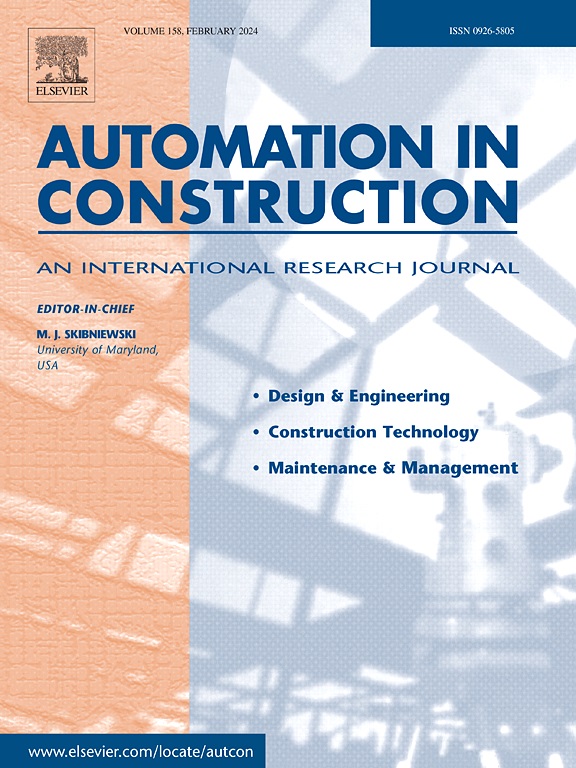建筑时空热风险分析:数字孪生监测
IF 9.6
1区 工程技术
Q1 CONSTRUCTION & BUILDING TECHNOLOGY
引用次数: 0
摘要
为有效降低高温风险,必须准确定位建筑工人易受高温影响的区域,并评估与高温有关的威胁的严重程度。本文通过绘制跨时间和空间的相关风险图来支持知情决策,从而加深对建筑业高温风险的理解。本文提出了一个由建筑工地数字孪生系统支持的热风险监测框架。该框架利用几何建模,结合气象站的实时气象数据,并利用计算模拟来评估时空热风险。在美国得克萨斯州斯蒂芬维尔进行的案例研究验证了该框架的有效性,与使用传统的黑球温度计相比,该框架显示出更高的保真度。此外,研究结果还证实,结合热风险的时空变化,可以加强对建筑工作场所热风险的监控。这种方法为了解迫在眉睫的热相关威胁提供了切实可行的见解,旨在预防建筑业中潜在的热相关事故。本文章由计算机程序翻译,如有差异,请以英文原文为准。
Spatio-temporal heat risk analysis in construction: Digital twin-enabled monitoring
To effectively mitigate heat risks, it is crucial to pinpoint areas of high vulnerability and assess the severity of heat-related threats to construction workers. This paper advances the understanding of heat risks in construction by mapping the associated risks across time and space to support informed decision-making. This paper presents a framework for heat risk monitoring, enabled by a construction site digital twin. This framework leverages geometric modeling, incorporates real-time weather data from a weather station, and utilizes computational simulations for assessing spatio-temporal heat risks. Its effectiveness was validated through a case study in Stephenville, Texas, USA, where it demonstrated superior fidelity when compared to using the conventional black-globe thermometer. Moreover, the results substantiated that incorporating the spatio-temporal variability of heat risks enhances heat risk surveillance in construction workplaces. This approach offers practical insights into imminent heat-related threats, aiming to prevent potential heat-related accidents in construction.
求助全文
通过发布文献求助,成功后即可免费获取论文全文。
去求助
来源期刊

Automation in Construction
工程技术-工程:土木
CiteScore
19.20
自引率
16.50%
发文量
563
审稿时长
8.5 months
期刊介绍:
Automation in Construction is an international journal that focuses on publishing original research papers related to the use of Information Technologies in various aspects of the construction industry. The journal covers topics such as design, engineering, construction technologies, and the maintenance and management of constructed facilities.
The scope of Automation in Construction is extensive and covers all stages of the construction life cycle. This includes initial planning and design, construction of the facility, operation and maintenance, as well as the eventual dismantling and recycling of buildings and engineering structures.
 求助内容:
求助内容: 应助结果提醒方式:
应助结果提醒方式:


